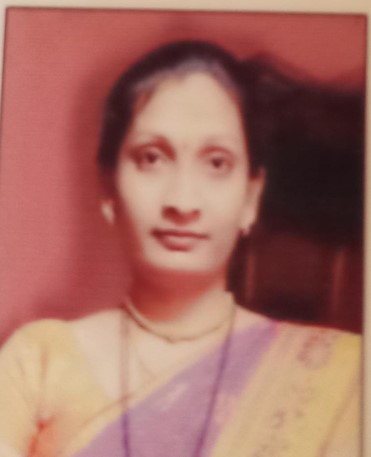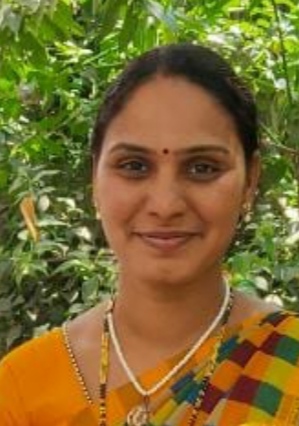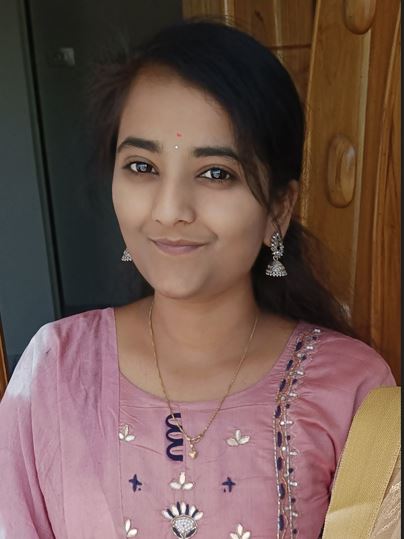The Department of Mathematics was established in the year 1988.
Aims & Objectives:
• To develop and improve students in understanding the Mathematical problems To make Mathematics easy and simple
• To convert real life problems to Mathematical problems
• To make Mathematical models
Stratergies:
• Arranging guest lecturers from different places
• Arranging problems solving classes
• To face the real life situations
• To involve in scientific researches
• Faculty Profile: - Adequacy and competency
Adequacy and competency of faculty:
• The faculty members of the department are quite adequate and skilled academic needs to the student community.
• The faculty member have updated their knowledge by attending orientation, Refresher courses, Workshops and seminars on recent developments in Mathematics.
1. Disciplinary Knowledge : Bachelor degree in Mathematics is the culmination of in-depth knowledge of Algebra, Calculus, Geometry,differential equations and several other branches of pure and applied mathematics. This also leads to study the related areas such as computer science and other allied subjects.
2. Communication Skills: Ability to communicate various mathematical concepts effectively using examples and their geometrical visualization. The skills and knowledge gained in this program will lead to the proficiency inanalytical reasoning which can be used for modelling and solving of real-life problems.
3. Critical thinking and analytical reasoning: The students undergoing this programme acquire ability of critical thinking and logical reasoning and capability of recognizing and distinguishing the various aspects of real life problems.
4. Problem Solving : The Mathematical knowledge gained by the students through this programme develop an ability to analyze the problems,identify and define appropriate computing requirements for its solutions.This programme enhances students overall development and also equip them with mathematical modelling ability, problem solving skills.
5. Research related skills: The completing this programme develop the capability of inquiring about appropriate questions relating to the Mathematical concepts in different areas of Mathematics.
6. Information/digital Literacy: The completion of this programme will enable the learner to use appropriate software’s to solve system of algebraic equation and differential equations.
7. Self – directed learning: The student completing this program will develop an ability of working independently and to make an in-depth study of various notions of Mathematics.
8. Moral and ethical awareness/reasoning: The student completing this program will develop an ability to identify unethical behaviour such as fabrication, falsification or misinterpretation of data and adopting objectives, unbiased and truthful actions in all aspects of life in general andMathematical studies in particular.
9. Lifelong learning: This programme provides self-directed learning and lifelong learning skills. This programme helps the learner to think independently and develop algorithms and computational skills for solving real word problems.
10.Ability to peruse advanced studies and research in pure and applied Mathematical sciences.
• Understand the conditions of Mathematics.
• Be able to perform basic computations in Higher Mathematics.
• Be able to read and understand middle level proofs.
• Be able to write and understand basic proofs.
• Develop and maintain problem solving skills.
• Use Mathematical ideas to model real-world problems.
• Acquire knowledge of the history of Mathematics.
• Be able to communicate Mathematical ideas with others.
• Have experience using technology to address Mathematical ideas.
This course will enable the students to
• Recognize the mathematical objects called Groups.
• Link the fundamental concepts of groups and symmetries of geometrical objects.
• Explain the significance of the notions of Cosets, normal subgroups and factor groups.
• Understand the concept of differentiation and fundamental theorems in differentiation and various rules.
• Find the extreme values of functions of two variables.
• To understand the concepts of multiple integrals and their
applications.
• Recognize the mathematical objects called Groups.
• Link the fundamental concepts of groups and symmetries of geometrical objects.
• Explain the significance of the notions of Cosets, normal subgroups and factor groups.
• Understand the concept of differentiation and fundamental theorems in differentiation and various rules.
• Find the extreme values of functions of two variables.
• Learn to solve system of linear equations.
• Solve the system of homogeneous and non-homogeneous linear of equations in n variables by using concept of rank of matrix, finding eigen values and eigen vectors.
• Sketch curves in Cartesian, polar and pedal equations
• Students will be familiar with the techniques of integration and differentiation of function with real variables.
• Identify and apply the intermediate value theorems and L’ Hospital rule.
| Sl.No |
Profile Photo |
Name |
Qualification |
Specialization |
Designation |
View Profile |
| 1 |
 |
Smt.Priyanka M Bammanni |
M.Sc, B.Ed |
Mathematics |
Assistant Professor |
View |
| 2 |
 |
Dr.Ranjana Honmore |
M.Sc, Ph.D |
Mathematics Graph Theory |
Assistant Professor |
View |
| 3 |
 |
Miss.Megha Bommanni |
M.Sc,B.Ed |
Mathematics |
Assistant Professor |
View |
Contact Details:
Name: Priyanka Bommanni
Phone: 9880716860
Email:






